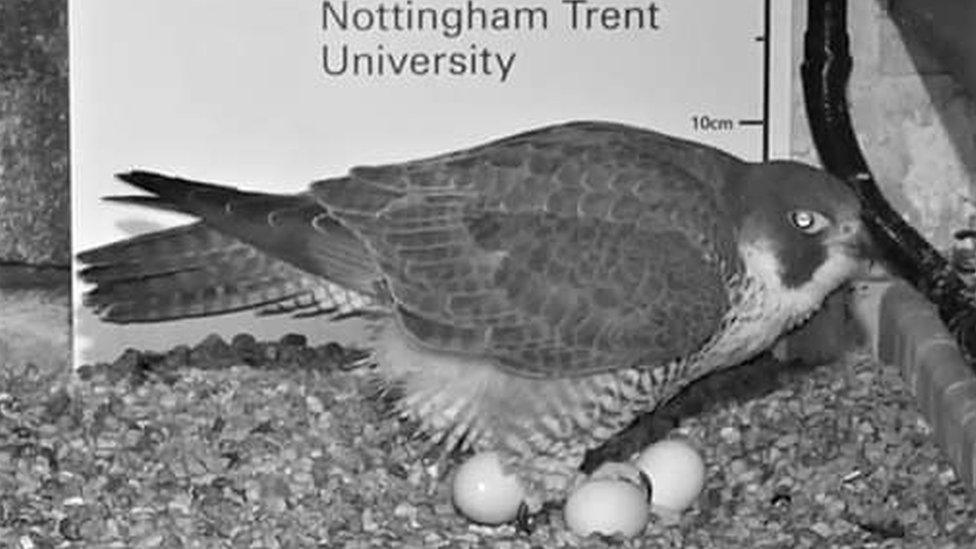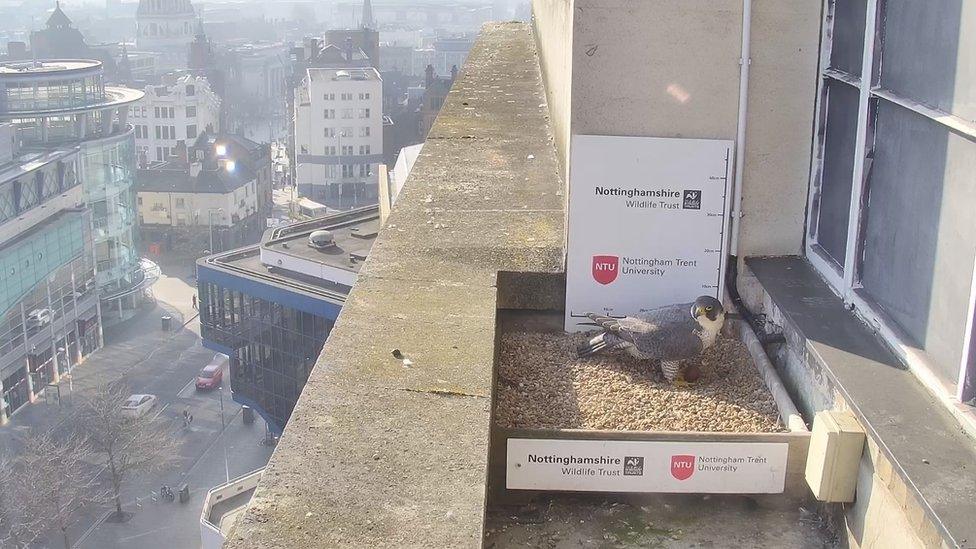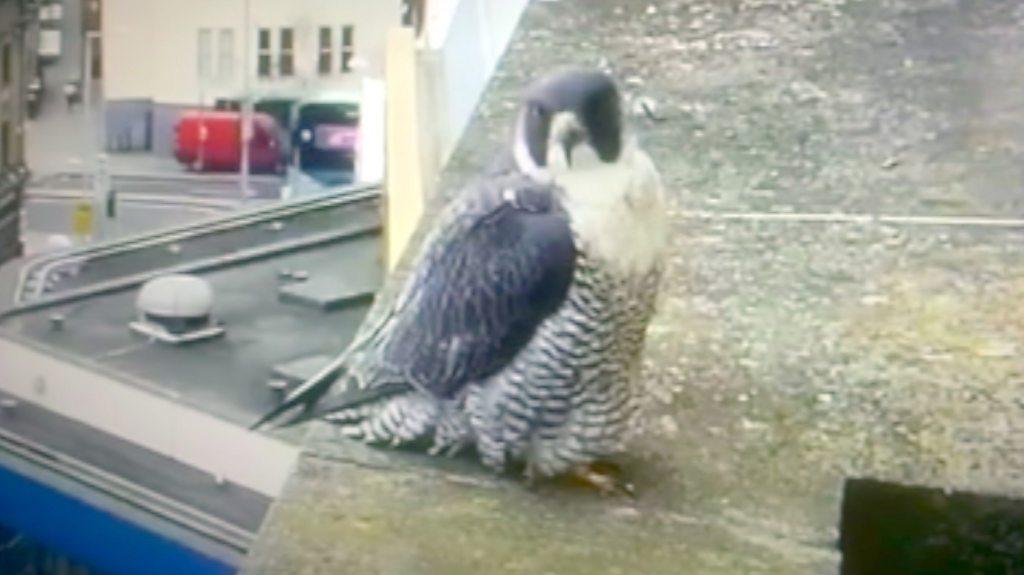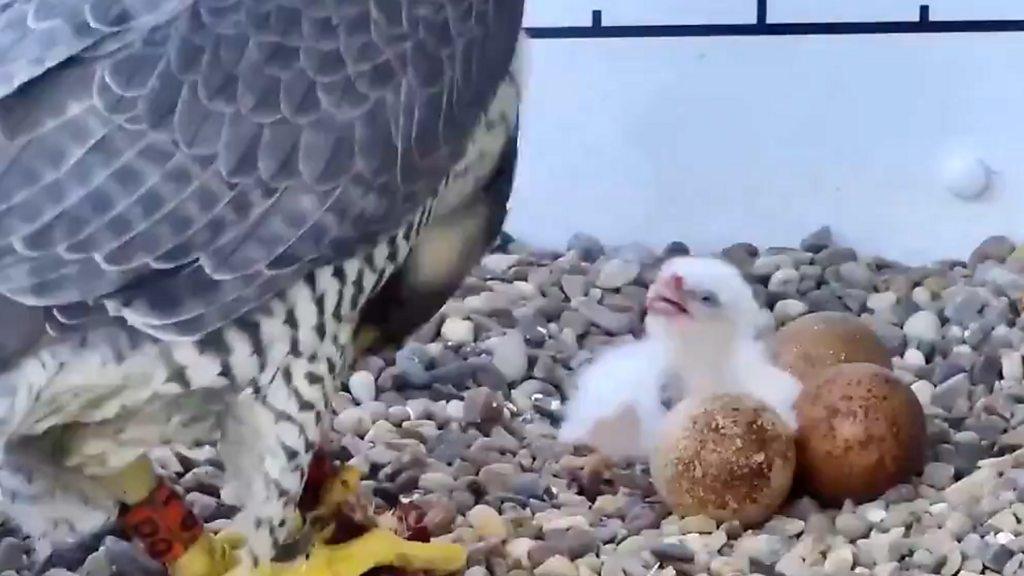Nottingham's peregrine falcon watchers hope for good news this year
- Published

The third egg was laid on Tuesday
A city's new resident female peregrine falcon has laid her first eggs of the season.
She took over from the longstanding female on top of Nottingham Trent University's Newton building, who was found dead last year.
And her first eggs received national recognition when thousands watched her chick hatch online.
The Wildlife Trust said after the "highs and lows" of 2021 they hoped for good news for this year's chicks.
The popularity of the nest's webcam last year came months after the longstanding female falcon, known as Mrs P was found dead and a new female called P9 took her place.
The trust said the change resulted in the eggs laid by the original female in mid-March not hatching.

The nest webcam has proved popular with bird enthusiasts
This year they are hoping for better news as the first egg of this season was laid last Thursday evening, a second on Saturday, and the third arrived on Tuesday.
A fourth egg was laid on Thursday meaning they can all now be incubated together.
The Trust's head of nature recovery, John Rattray, said: "It's wonderful that we have such a successful nest right at the heart of our city.
"We're delighted to be able to work with NTU to protect our Nottingham pair, and that the fabulous cameras provided by the university for security, also provide people from across the globe the chance to watch on in awe."
'Excitement and drama'
The Wildlife Trust and NTU said they hoped the cameras would once again provide viewers from across the UK and beyond "with a privileged window onto these amazing wild birds".
Charmaine Morell, head of sustainability at the university, said: "It's a special time of year when the falcons return to their nest and lay eggs, it's a sign that the excitement and drama is beginning.
"Events in the nest are watched by their huge fan base, some one million views world wide over the past few years. Let's hope Archie and P9 (Peanut) are successful again this year, from the relative safety of their high rise city centre nest - we'll all be watching the live feed eagerly."
Since the cameras were installed in 2012, viewers have seen 29 chicks fledge - with 40 chicks fledging in total since the man-made nest was built 20 years ago.

Follow BBC East Midlands on Facebook, external, Twitter, external, or Instagram, external. Send your story ideas to eastmidsnews@bbc.co.uk, external.
Related topics
- Published12 March 2021

- Published9 May 2021
